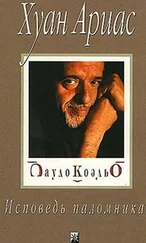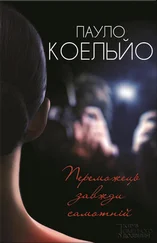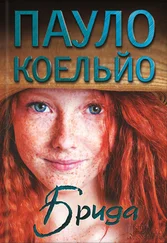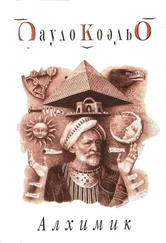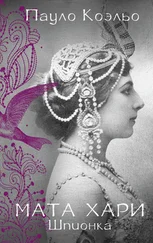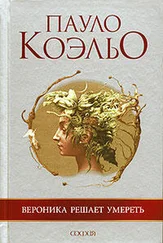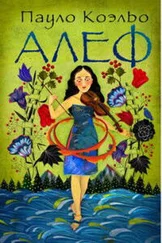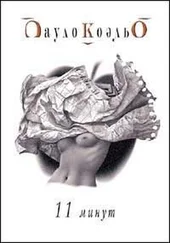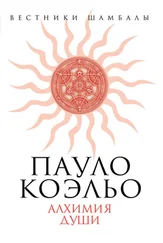Пауло Коэльо - The Alchemist
Здесь есть возможность читать онлайн «Пауло Коэльо - The Alchemist» весь текст электронной книги совершенно бесплатно (целиком полную версию без сокращений). В некоторых случаях можно слушать аудио, скачать через торрент в формате fb2 и присутствует краткое содержание. Жанр: Старинная литература, на русском языке. Описание произведения, (предисловие) а так же отзывы посетителей доступны на портале библиотеки ЛибКат.
- Название:The Alchemist
- Автор:
- Жанр:
- Год:неизвестен
- ISBN:нет данных
- Рейтинг книги:4 / 5. Голосов: 1
-
Избранное:Добавить в избранное
- Отзывы:
-
Ваша оценка:
- 80
- 1
- 2
- 3
- 4
- 5
The Alchemist: краткое содержание, описание и аннотация
Предлагаем к чтению аннотацию, описание, краткое содержание или предисловие (зависит от того, что написал сам автор книги «The Alchemist»). Если вы не нашли необходимую информацию о книге — напишите в комментариях, мы постараемся отыскать её.
The Alchemist — читать онлайн бесплатно полную книгу (весь текст) целиком
Ниже представлен текст книги, разбитый по страницам. Система сохранения места последней прочитанной страницы, позволяет с удобством читать онлайн бесплатно книгу «The Alchemist», без необходимости каждый раз заново искать на чём Вы остановились. Поставьте закладку, и сможете в любой момент перейти на страницу, на которой закончили чтение.
Интервал:
Закладка:
But, in the desert, there was only the sound of the eternal wind, and of the hoofbeats of the animals. Even the guides spoke very little to one another.
"I've crossed these sands many times," said one of the camel drivers one night. "But the desert is so huge, and the horizons so distant, that they make a person feel small, and as if he should remain silent."
The boy understood intuitively what he meant, even without ever having set foot in the desert before. Whenever he saw the sea, or a fire, he fell silent, impressed by their elemental force.
I've learned things from the sheep, and I've learned things from crystal, he thought. I can learn something from the desert, too. It seems old and wise.
The wind never stopped, and the boy remembered the day he had sat at the fort in Tarifa with this same wind blowing in his face. It reminded him of the wool from his sheep… his sheep who were now seeking food and water in the fields of Andalusia, as they always had.
"They're not my sheep anymore," he said to himself, without nostalgia. "They must be used to their new shepherd, and have probably already forgotten me. That's good. Creatures like the sheep, that are used to traveling, know about moving on."
He thought of the merchant's daughter, and was sure that she had probably married. Perhaps to a baker, or to another shepherd who could read and could tell her exciting stories—after all, he probably wasn't the only one. But he was excited at his intuitive understanding of the camel driver's comment: maybe he was also learning the universal language that deals with the past and the present of all people. "Hunches," his mother used to call them. The boy was beginning to understand that intuition is really a sudden immersion of the soul into the universal current of life, where the histories of all people are connected, and we are able to know everything, because it's all written there.
"Maktub," the boy said, remembering the crystal merchant.
The desert was all sand in some stretches, and rocky in others. When the caravan was blocked by a boulder, it had to go around it; if there was a large rocky area, they had to make a major detour. If the sand was too fine for the animals' hooves, they sought a way where the sand was more substantial. In some places, the ground was covered with the salt of dried-up lakes. The animals balked at such places, and the camel drivers were forced to dismount and unburden their charges. The drivers carried the freight themselves over such treacherous footing, and then reloaded the camels. If a guide were to fall ill or die, the camel drivers would draw lots and appoint a new one.
But all this happened for one basic reason: no matter how many detours and adjustments it made, the caravan moved toward the same compass point. Once obstacles were overcome, it returned to its course, sighting on a star that indicated the location of the oasis. When the people saw that star shining in the morning sky, they knew they were on the right course toward water, palm trees, shelter, and other people. It was only the Englishman who was unaware of all this; he was, for the most part, immersed in reading his books.
The boy, too, had his book, and he had tried to read it during the first few days of the journey. But he found it much more interesting to observe the caravan and listen to the wind. As soon as he had learned to know his camel better, and to establish a relationship with him, he threw the book away. Although the boy had developed a superstition that each time he opened the book he would learn something important, he decided it was an unnecessary burden.
He became friendly with the camel driver who traveled alongside him. At night, as they sat around the fire, the boy related to the driver his adventures as a shepherd.
During one of these conversations, the driver told of his own life.
"I used to live near El Cairum," he said. "I had my orchard, my children, and a life that would change not at all until I died. One year, when the crop was the best ever, we all went to Mecca, and I satisfied the only unmet obligation in my life. I could die happily, and that made me feel good.
"One day, the earth began to tremble, and the Nile overflowed its banks. It was something that I thought could happen only to others, never to me. My neighbors feared they would lose all their olive trees in the flood, and my wife was afraid that we would lose our children. I thought that everything I owned would be destroyed.
"The land was ruined, and I had to find some other way to earn a living. So now I'm a camel driver. But that disaster taught me to understand the word of Allah: people need not fear the unknown if they are capable of achieving what they need and want.
"We are afraid of losing what we have, whether it's our life or our possessions and property. But this fear evaporates when we understand that our life stories and the history of the world were written by the same hand."
Sometimes, their caravan met with another. One always had something that the other needed—as if everything were indeed written by one hand. As they sat around the fire, the camel drivers exchanged information about windstorms, and told stories about the desert.
At other times, mysterious, hooded men would appear; they were Bedouins who did surveillance along the caravan route. They provided warnings about thieves and barbarian tribes. They came in silence and departed the same way, dressed in black garments that showed only their eyes. One night, a camel driver came to the fire where the Englishman and the boy were sitting. "There are rumors of tribal wars," he told them.
The three fell silent. The boy noted that there was a sense of fear in the air, even though no one said anything. Once again he was experiencing the language without words… the universal language.
The Englishman asked if they were in danger.
"Once you get into the desert, there's no going back," said the camel driver. "And, when you can't go back, you have to worry only about the best way of moving forward. The rest is up to Allah, including the danger."
And he concluded by saying the mysterious word: "Maktub."
"You should pay more attention to the caravan," the boy said to the Englishman, after the camel driver had left. "We make a lot of detours, but we're always heading for the same destination."
"And you ought to read more about the world," answered the Englishman. "Books are like caravans in that respect."
The immense collection of people and animals began to travel faster. The days had always been silent, but now, even the nights—when the travelers were accustomed to talking around the fires—had also become quiet. And, one day, the leader of the caravan made the decision that the fires should no longer be lighted, so as not to attract attention to the caravan.
The travelers adopted the practice of arranging the animals in a circle at night, sleeping together in the center as protection against the nocturnal cold. And the leader posted armed sentinels at the fringes of the group.
The Englishman was unable to sleep one night. He called to the boy, and they took a walk along the dunes surrounding the encampment. There was a full moon, and the boy told the Englishman the story of his life.
The Englishman was fascinated with the part about the progress achieved at the crystal shop after the boy began working there.
"That's the principle that governs all things," he said. "In alchemy, it's called the Soul of the World. When you want something with all your heart, that's when you are closest to the Soul of the World. It's always a positive force."
He also said that this was not just a human gift, that everything on the face of the earth had a soul, whether mineral, vegetable, or animal—or even just a simple thought.
"Everything on earth is being continuously transformed, because the earth is alive… and it has a soul. We are part of that soul, so we rarely recognize that it is working for us. But in the crystal shop you probably realized that even the glasses were collaborating in your success."
Читать дальшеИнтервал:
Закладка:
Похожие книги на «The Alchemist»
Представляем Вашему вниманию похожие книги на «The Alchemist» списком для выбора. Мы отобрали схожую по названию и смыслу литературу в надежде предоставить читателям больше вариантов отыскать новые, интересные, ещё непрочитанные произведения.
Обсуждение, отзывы о книге «The Alchemist» и просто собственные мнения читателей. Оставьте ваши комментарии, напишите, что Вы думаете о произведении, его смысле или главных героях. Укажите что конкретно понравилось, а что нет, и почему Вы так считаете.

